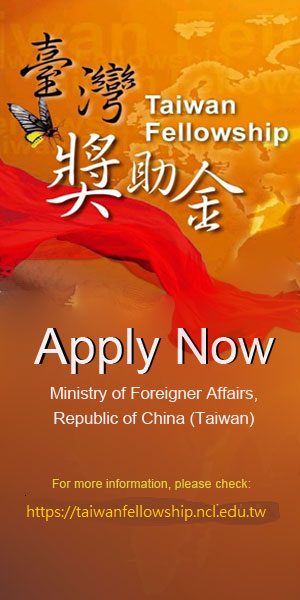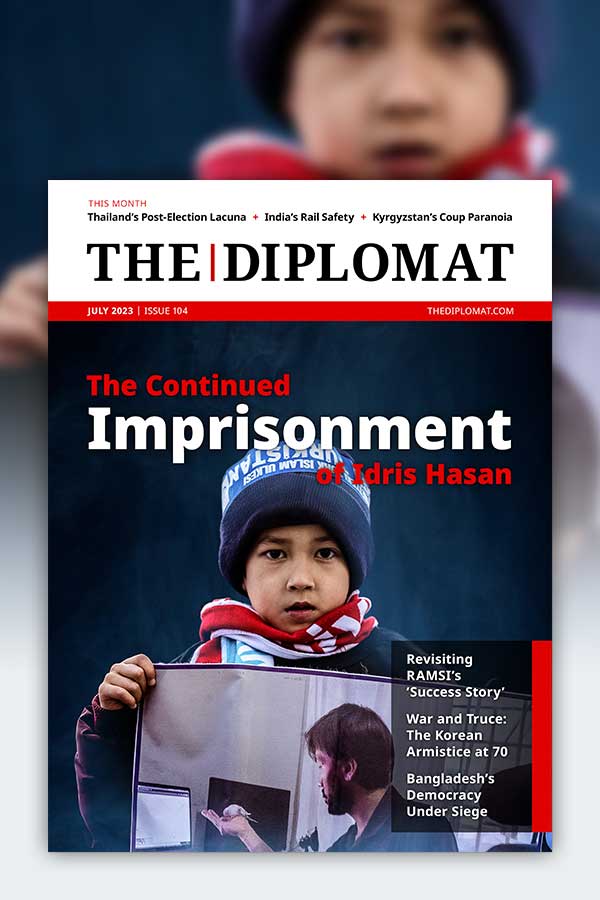|
Welcome to the latest issue of Diplomat Brief. This week our top
story explores the politics behind Cambodia’s opposition-free election. We also have an
interview with M. Humayun Kabir, a Bangladeshi career diplomat who is currently president of the
Bangladesh Enterprise Institute (BEI), about the prospect for fair and credible elections in
Bangladesh.
|
|
Story of the week
|
![[object Object]](https://thediplomat.com/diplomat-brief/2023/vol29/images/feature.jpg?v=2) |
Politics In Cambodia, Hun Sen Searches for the
Magic Political Formula
What Happened: Cambodians will go to the polls on July 23 for a national
election that is certain to deliver another victory for Prime Minister Hun Sen’s
Cambodian People’s Party (CPP). Back in May, the Candlelight Party, the only
meaningful source of opposition, was barred from participating for supposedly
submitting the wrong registration documents. This makes it likely that the CPP
will repeat the result of 2018, when it won all 125 seats in the National
Assembly. While the result of the election is clear in advance, the stakes for
Hun Sen are still high, given his carefully laid plans to hand over power to his
son Hun Manet, which is expected to take place sometime after the election.
Our Focus: For Hun Sen, “the real work will begin after election day,”
Markus Karbaum, a researcher focused on Cambodia and Southeast Asia, writes for
The Diplomat. “The composition of the new cabinet marks another and the most
significant step yet in the generational transition in Cambodia’s top political
posts.” While Hun Sen has been setting up his son as his successor for years, a
power transition is going to be tricky in such a personalized political system.
“Therefore, Cambodia is entering its most fragile political phase in at least 25
years,” Karbaum notes. Hun Sen will work carefully to ensure that all the major
players in the party, state, and army are on board before formally handing over
power.
What Comes Next: Beyond ensuring a smooth political transition at the
elite level, the bigger challenge will be retaining the fig leaf of popular
support. Hun Sen has built his legitimacy on the claim that he restored peace to
Cambodia after the bloody years of Khmer Rouge rule. Passing the torch to Hun
Manet, though, is hard to justify as anything other than a naked dynastic power
grab. The power transition thus risks laying bare the endemic corruption already
lurking in plain sight: “Cambodia’s ministries are on the verge of becoming
family-run hereditary farms, making it clear once again that the political elite
does not like to make a distinction between state and private property.” Read this story |
|
Behind the News
|
INTERVIEW M. Humayun Kabir
M. Humayun Kabir, president of the Bangladesh Enterprise Institute (BEI) on the
prospects for a fair election next year: “The history of Bangladesh offers a
mixed picture, filled with both a sense of optimism and a sense of pessimism.
The optimism comes from the fact that despite the posturing, political parties
in Bangladesh had to eventually come to an agreement in the past… The pessimism
comes from the fact that most of the past political changes were settled on the
basis of street power.” Read the interview |
|
This Week in Asia
|
Northeast Asia US Climate Envoy Visits Beijing
John Kerry, the U.S. special envoy for climate, is now the third U.S.
Cabinet-level official to visit China in the past
month, following Secretary of State Antony Blinken and Secretary of the
Treasury Janet Yellen. Unlike Blinken and Yellen, however, Kerry had visited
China twice before; he was hoping to restore previous progress rather than
starting afresh. Despite the recent influx of visits, though, mutual trust
between China and the U.S. remains a distant
prospect. Find out more |
South Asia Modi Visit Highlights India-France
Ties
Fresh off a state visit to the U.S. in late June, Indian Prime Minister Narendra
Modi continued his globetrotting with a visit to France. The
U.S. trip garnered more attention, but India’s relationship with France is
arguably even stronger: both are proud democracies that are concerned about
China, but also skeptical of too closely following the U.S. lead. India also
imports more arms from France than from the U.S., and defense cooperation
featured heavily in Modi’s visit. Find out more |
Southeast Asia Thailand’s Prime Minister Deadlock
Continues
On July 19, Thailand’s parliament yet again failed to agree on a prime minister
candidate, after Pita Limjaroenrat, whose Move Forward Party holds the most
seats, was denied the chance to seek support in a second vote. Pita fell short
in the first vote held on July 13. Both
times, Pita’s candidacy was sunk by the opposition of the 250-member Senate,
whose members are appointed by the military and are generally opposed to the
MFP’s reformist platform. Notably, Pita and his eight-party coalition hold the
75 percent of seats in the popularly elected lower house. The tension between
military recalcitrance and popular will could see a new wave of protests as
the prime minster deadlock continues. Find out more |
Central Asia The Growing Appeal of Mongolia’s
Summer Festival Naadam
Naadam, a traditional summer festival celebrated in Mongolia for centuries, has
over the last decade become more internationalized. As part of efforts to boost
tourism and highlight Mongolia’s
traditional heritage, the festival has increasingly drawn in visitors from
abroad. The ancient celebration, mixed with modern Mongolia’s ambitions, is a vibrant celebration of
Mongolian culture. Find out more |
|
Visualizing APAC
|

|
Supporters of the Move Forward Party gathered outside of Parliament to show their
support for prime minister candidate Pita Limjaroenrat during the first vote on July
13. See the full picture |
|
Word of the Week
|
Society 走线
Zǒuxiàn, Mandarin for “walking the route,” is an internet term that refer
to the act of irregular migration to the U.S. via Latin America by foot. Find out more |
|
 |


![[object Object]](https://thediplomat.com/diplomat-brief/2023/vol29/images/feature.jpg?v=2)

